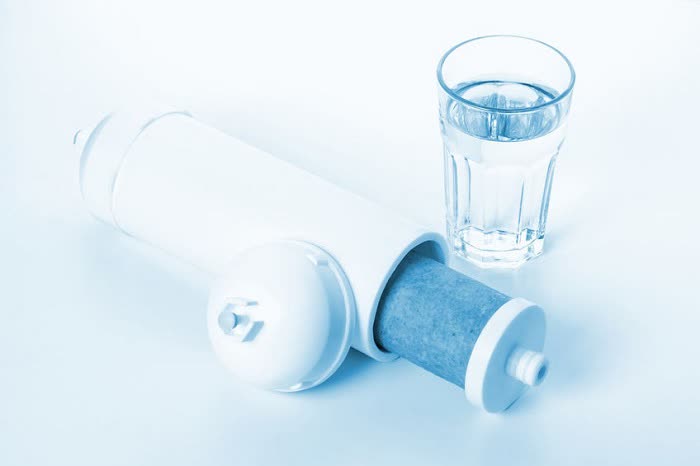Access to clean, safe drinking water is fundamental for maintaining good health. In many homes, tap water may contain impurities, contaminants, or chemicals that affect the quality of the water and, subsequently, the health of the people who consume it. While municipal water systems aim to provide safe drinking water, the presence of chlorine, fluoride, and other contaminants in some areas may make it less than ideal for daily consumption. This is where residential drinking water filtration systems come into play. These systems offer a highly effective solution for ensuring the water you drink is pure, healthy, and free of harmful substances.
Understanding the Need for Residential Drinking Water Filtration Systems
In many parts of the world, tap water is treated with chemicals to disinfect it and eliminate harmful bacteria. However, these treatment processes can also introduce undesirable substances into the water, such as chlorine and fluoride, which some people prefer to avoid for health reasons. Additionally, natural sources of water can be contaminated with pollutants like pesticides, heavy metals, and microorganisms, which pose significant risks to human health.
A Residential Drinking Water Filtration System is designed to address these concerns by removing contaminants and providing access to water that is not only safe but also tastes better. These filtration systems work by using various technologies such as activated carbon filters, reverse osmosis, or UV purifiers, each designed to target different types of impurities in water.
How Residential Drinking Water Filtration Systems Work
Residential water filtration systems come in a variety of types, each tailored to meet the specific needs of a household. Here’s a look at some of the most popular filtration technologies and how they work:
- Activated Carbon Filtration: One of the most common types of water filters, activated carbon filters are effective at removing chlorine, volatile organic compounds , and some heavy metals. This technology works by adsorbing contaminants onto the surface of the carbon, ensuring that the water you drink is free from chlorine taste and odors.
- Reverse Osmosis : RO systems use a semi-permeable membrane to remove up to 99% of contaminants, including bacteria, viruses, salts, and heavy metals. These systems are ideal for areas with hard water or high levels of dissolved solids, ensuring that the water is both clean and safe to drink.
- Ultraviolet Purification: UV filters use ultraviolet light to kill harmful bacteria and viruses present in water. This technology is particularly useful for households that rely on well water, as it helps to disinfect water and make it safe for consumption.
- Ion Exchange: This filtration method is often used to soften hard water by exchanging minerals like calcium and magnesium with sodium ions. It can help improve water quality and reduce the buildup of scale in plumbing systems.
- Sediment Filtration: Sediment filters remove large particles such as sand, dirt, and rust from the water. They are commonly used as a pre-filter in combination with other systems to ensure that the water is thoroughly cleaned before it passes through additional filtration stages.
Each of these systems can be tailored to the specific water quality needs of your home, providing you with a comprehensive solution for cleaner, safer drinking water.
Benefits of Installing a Residential Drinking Water Filtration System
- Improved Health: By removing harmful contaminants like chlorine, lead, and bacteria, a Residential Drinking Water Filtration System ensures that the water you consume is safer and healthier. Drinking clean water reduces the risk of waterborne diseases and long-term health issues associated with pollutants.
- Better Taste and Odor: Tap water often contains chlorine and other chemicals that can affect its taste and smell. Filtration systems improve the flavor and aroma of your drinking water, making it more enjoyable to drink and cook with.
- Cost-Effective: Bottled water can be expensive, and the cost of constantly buying it adds up over time. A filtration system provides an affordable, eco-friendly alternative that ensures you always have access to clean water right from your tap.
- Convenience: Having access to filtered water at home eliminates the need to carry heavy bottles of water from the store. It also ensures that your water is always fresh, whether you’re making a cup of coffee, cooking, or hydrating during physical activities.
- Protects Appliances and Plumbing: Water impurities can cause scaling in appliances like water heaters, coffee machines, and dishwashers, shortening their lifespan. By removing minerals that cause hard water, a filtration system helps prevent these issues and extends the life of your appliances.
- Environmentally Friendly: Using a water filtration system helps reduce plastic waste. By eliminating the need for bottled water, you contribute to environmental conservation by reducing your carbon footprint and supporting sustainability efforts.
Choosing the Right Residential Drinking Water Filtration System
When selecting a Residential Drinking Water Filtration System, it’s essential to consider several factors, such as the specific contaminants in your water, the flow rate you need, and the type of system that best suits your household. Some systems are more effective at removing specific contaminants, while others are more versatile and provide a multi-stage filtration process.
It’s also important to factor in maintenance costs, as certain systems require regular filter replacements or annual servicing to ensure they remain effective. Be sure to follow the manufacturer’s instructions for proper maintenance to get the most out of your system.
Conclusion
Investing in a Residential Drinking Water Filtration System is an excellent way to ensure that you and your family have access to clean, safe drinking water. Whether you choose activated carbon, reverse osmosis, or a combination of different technologies, a filtration system offers numerous benefits, including improved health, better taste, cost savings, and environmental impact. By choosing the right filtration system for your home, you can enjoy peace of mind knowing that the water you drink is pure, refreshing, and free of harmful contaminants.
Read more business bloge here’s



